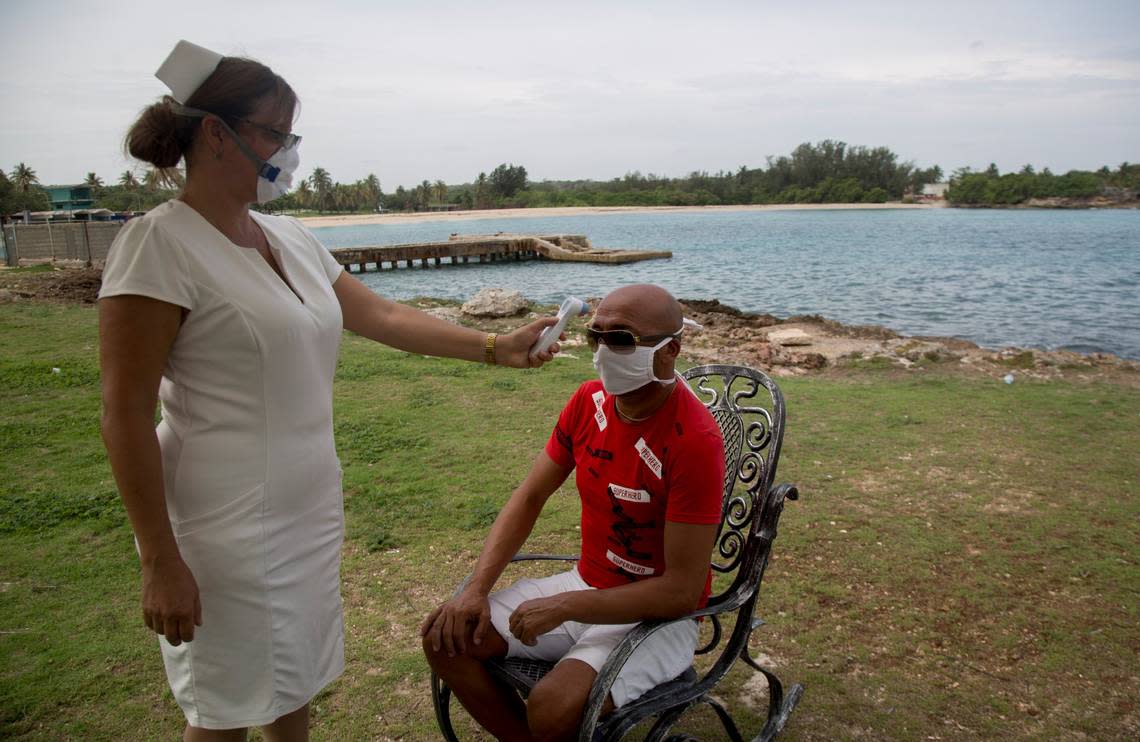Cuba announces reopening plan citing fewer cases of COVID-19. Airports to remain closed

The Cuban government said Thursday that it has the coronavirus outbreak under control and announced a three-phase plan to gradually “reopen” the country, although airports will remain closed at least until late summer.
On the live television show La Mesa Redonda — Round Table — Cuban leader Miguel Díaz-Canel said that low numbers of new cases of coronavirus and related deaths suggest the country is ready to consider a “gradual” plan to restart the economy while trying to avoid a new outbreak.
The halt in tourism, one of the primary sources of revenue for the government, has dealt a severe blow to the economy. But even if official numbers show a decrease in new cases in recent days, the island will not be receiving foreign tourists right away.
Prime Minister Manuel Marrero said that restrictions on entering and leaving the country will remain in place during “the first phase” of the reopening, but did not specify dates. Cuban residents can return to the country as airports are receiving repatriation flights, Marrero said.
He added that commercial flights will not be allowed until phase three, but charter flights taking tourists to Cuba’s nearby keys might be allowed earlier.
The United States Embassy in Havana said this week that the Cuban government had notified U.S. officials that airports would remain closed until at least Aug. 1.
Marrero said that when foreign travel resumes, all tourists will be tested for the coronavirus at the airports. Hotel staff will also be tested, and workers will be asked to isolate themselves after seven-day shifts. Each hotel will have a medical team to follow up on each traveler.
At first, foreign tourists will only be allowed to stay in hotels in Cayo Santa Maria, Cayo Coco, Cayo Guillermo and Cayo Largo del Sur.
But tourists and locals will not mingle. Tourists won’t be able to visit the mainland during their stay, and Cuban nationals will not be allowed to book hotels in the keys.
The government will open hotels first to domestic tourism during phase one. Still, many Cubans rely on family remittances to buy food and clothes, and to pay for vacations. And remittances, estimated at $3.7 billion annually, have dried up, as many Cubans residing in the U.S. and other countries grapple with the economic fallout from the coronavirus pandemic.
New sanctions by the U.S. government against Fincimex, the Cuban company controlled by the military that handles all remittances, could further cut the money flowing to the island.
With scarce financial resources, the government has rationed the sale of food even at stores selling in hard currency, and Cubans have defied the virus by waiting in long lines to buy groceries.
Cuban authorities acknowledged that the virus will likely continue to circulate on the island for longer, but said the public health system could handle any new cases.
Díaz-Canel said the plan would keep in place measures such as contact tracing and isolation of suspected cases that have helped to contain the virus.
Provinces and municipalities will enter each phase following protocols already defined by health authorities, Marrero said without elaborating. Most provinces could soon enter phase one, he added.
During the first phase of returning to the new normal, the use of face masks and social distancing measures will be mandatory. Later, face coverings will only be required in crowded public places. Other measures, such as banning employees with respiratory symptoms from showing up at their workplace, will be permanent, the prime minister said.
Schools will reopen in September, but universities will remain closed until the third phase. Scheduled transportation services between provinces will be restored during phase two.
Hospitals will reopen at 50 percent during phase one.
International sports events, carnivals, and large cultural events will be suspended, but the national baseball series will resume later in the year.
As of Thursday, health authorities reported 2,219 confirmed cases of coronavirus and 84 deaths. No deaths were reported for several days, but the virus seems to be lingering in Havana, where more than 150 people got infected in several local outbreaks.
Díaz-Canel credited the Cuban health system and the local pharmaceutical industry for the control of the epidemic.
But there are no independent sources on the situation of the coronavirus on the island. The government does not allow state, independent or foreign journalists to visit hospitals or funeral homes without authorization. And international health organizations depend on data provided by the government.
The reopening strategy was sanctioned by Raúl Castro, who at 89 still heads the country as the first Secretary of the Communist Party but appears in public only on rare occasions. Díaz-Canel said that Castro chaired a meeting of the Political Bureau of the Communist Party on Tuesday, in which the reopening plan was approved.
Follow Nora Gámez Torres on Twitter: @ngameztorres

